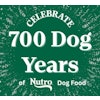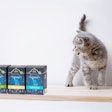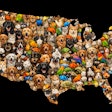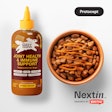According to recent reports from the American Pet Products Association and Packaged Facts, the US pet industry stared down the recession and won, gaining 5% last year to a total of US$53 billion. The US petfood category also grew 5%, to US$17.56 billion.
It's no wonder, then, that companies continue to enter the market and existing petfood players keep introducing new products. For example, Tyson just announced that its new Tyson Pet Products subsidiary is launching a line of dog chews .
Yet I was caught off guard by the news that the Humane Society of the United States (HSUS) is coming out with a line of dog food, Humane Choice , which it says is cruelty free, all natural and certified organic. The main protein source is soy.
I'm not shocked by the type of product HSUS is launching nor its professed reasons: "to offer consumers a wholesome and nutritious dog food that does not contain animal-based proteins or support the factory farming industry," according to a press release. "It's an opportunity to support our work confronting animal cruelty," a spokeswoman added.
But I have to confess surprise that an organization like HSUS would even enter this marketplace. Think about it: HSUS has consistently pursued an activist agenda targeting significant segments of the economy, including petfood in the wake of the 2007 US recalls. Yet now it's jumping into business itself, competing directly for a share of pet owners' wallets (over and above what it already gets from donations). Is HSUS following the cliche, if you can't beat 'em, join 'em-convinced it can do better?
HSUS claims it is receiving 6% of the wholesale price of each bag sold "to help fund our critical life-saving programs to rescue animals from disasters, provide spaying and neutering and other veterinary services, conduct undercover investigations of animal cruelty and more." You can't argue with those first two programs, but I find it ironic that under the HSUS umbrella of "confronting animal cruelty" lies some of the foundations-agriculture and farming-the petfood industry is built on.
HSUS is going around those foundations by using a grower and manufacturer in Uruguay. The certifying body, Organizacion Internacional Agropecuraria, a member of the Organic Trade Association, is based in Argentina. Is this a sustainable business model?
And, has HSUS measured the carbon footprint of having a product manufactured in one country, certified by an organization in another country (both toward the farthest end of South America), then transported, to and via a distributor based in Vista, California ( G&B Marketing ) all over the US-but starting on the East Coast? (In select Petco and Whole Foods stores.)
I will give the organization credit for transparency with its product website. And I imagine pet owners who truly believe in HSUS and its causes will appreciate having this option for feeding their dogs (possibly soon their cats, too, according to the site).
But I can't help wonder if HSUS-like many businesses-simply looked at the dynamic petfood industry, especially the rapidly growing natural and organic segments, and decided that getting a piece of that market could create a healthy funding boost. The fact that such funding will help fuel the organization's activism-including against elements of the very industry it is now joining-is just icing on the cake.
Watch for more information about Humane Choice and HSUS in the April issue. Meanwhile, what do you think about this development?
















